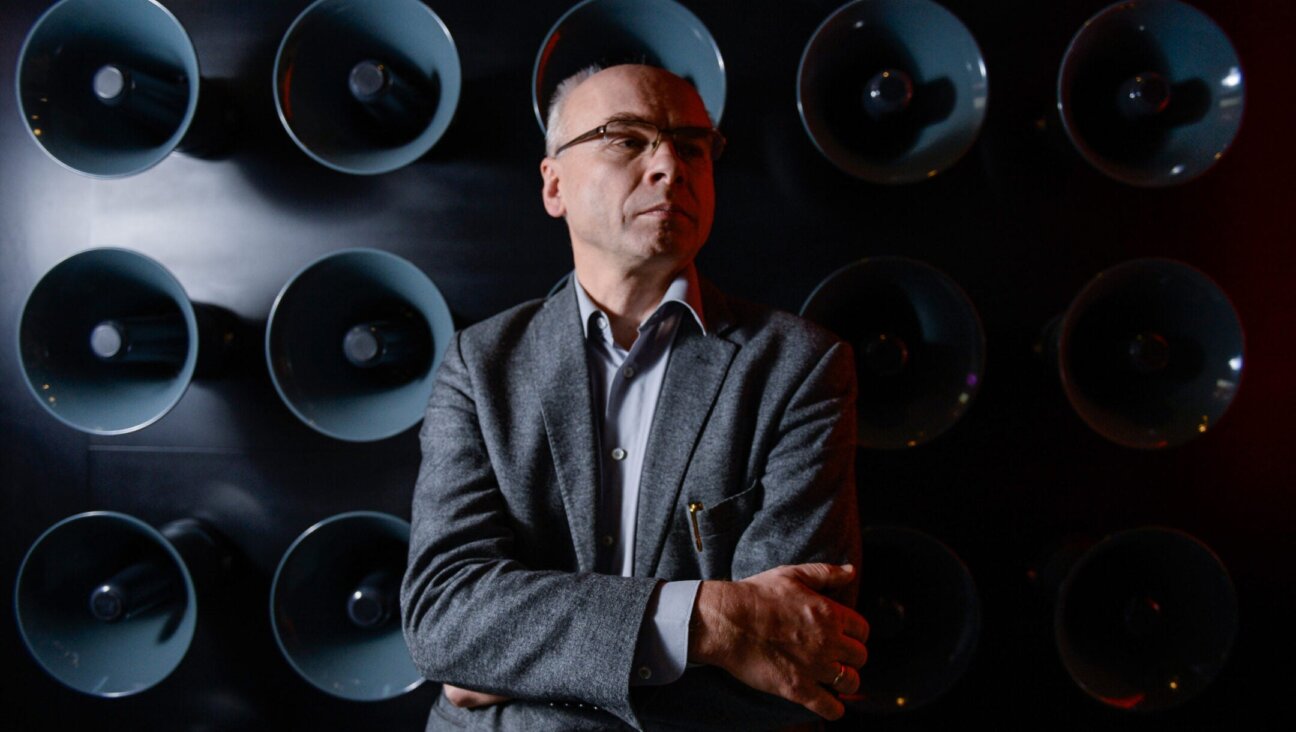Israel Plays Key Role in N.J. Corruption Case, But Holds Off on Own Probe
Israel plays a prominent role in the charges of money laundering and human organ black marketing that have swept five rabbis into a New Jersey federal corruption investigation.
Among other things, Israeli banks were allegedly key transit points for the money laundering operation. The rabbis accused of laundering money were allegedly told that it came from sales of knockoff products labeled as legitimate brands and from other illicit activities.
But Israeli law enforcement agencies say they have yet to launch probes of their own.
One of the key suspects charged in the money laundering operations is Levi Deutsch, an Israeli who resides in Israel but makes regular visits to America, where he was arrested July 23 as part of the federal sweep. According to the criminal complaints, Deutsch was a high-level source of cash from overseas for funding the bank checks that passed through charitable entities.
Another of the arrested rabbis, Eliahu Ben-Haim, allegedly laundered $1.5 million with the help of an as yet unidentified Israeli for a witness cooperating with the FBI. After laundering the illicit funds through Israel, the Israeli is believed to have arranged for Ben-Haim’s clients to receive their money through intermediary cash houses. He is thought to have charged a 1.5% fee.
Israel is no stranger to money laundering. In 2000, Israel was featured on the inter-governmental Financial Action Task Force’s blacklist of countries considered uncooperative in the fight against money laundering. The FATF is an international body that includes among its members the United States, China, Russia and countries of the European Union.
“For many years, Israel was the last Western country which wasn’t fighting money laundering,” said Hebrew University law academic Guy Harpaz, who has published research on money laundering.
Now, Israel is in the midst of cracking down on money laundering. Shortly after the blacklisting, Israel passed a law mandating tough measures. In 2002, the Ministry of Justice, as required by the new law, established the Israeli Financial Intelligence Unit, now the Israel Money Laundering and Terror Financing Prohibition Authority, to assist in the investigation and prevention of money laundering.
Israel was removed from the FATF blacklist in 2002, but placed on the monitoring list. The next year, it was taken off the monitoring list. Israel is today “in line with most European countries,” Harpaz said.
According to the federal charges, Levy Izhak Rosenbaum, who is charged with trading in kidneys for profit, told informants cooperating with the FBI that he obtained the organs from young Israelis who were allegedly paid $10,000 out of the $150,000 he is said to have charged organ recipients.
“There are people over there hunting,” he said, adding, “You have to shmear,” meaning pay people for their help. He indicated that among those needing payment were Israeli doctors who would carry out tests on the potential donor.
The cross-continental cooperation continued when checking whether the potential kidney seller was a correct match for the buyer. The criminal complaint indicates that Rosenbaum sent frozen blood samples with people flying to Israel from America. “[S]omebody takes it,” he allegedly told the cooperating witness.
The criminal complaint quotes Rosenbaum saying that he had brokered “quite a lot” of deals over the past 10 years — though no official estimate has been released of how many.
Tamar Ashkenazi, head of the Ministry of Health-funded National Transplant Center, told the Forward that she was “very surprised” to learn of the alleged sales. In Israel, she noted, strict ethical committees must approve every donation made, rendering domestic organ sales almost nonexistent. The allegations in the United States have raised a fear that “if people want to donate [for money] and are not passing [Israeli] ethical committees, they are going abroad,” she commented.
Authorities are newly empowered to fight organ trafficking. Until last, the rules governing transplants were set by the director general of the Health Ministry. The courts ruled a number of times that there was a need to legislate the matter in law. One of the results of a lack of a legal basis was the lack of any framework to prosecute organ brokers.
Then in March 2008, one month into Rosenbaum’s 17-month contact with the cooperating witness, Israel passed a new law prohibiting organ trafficking, receiving compensation for organs and mediation in order to receive a donation.
Nevertheless, for both the money laundering and organ black marketing aspects of this scandal, Israeli law enforcement officials say they will defer to their American counterparts.
“At the moment, investigations are only in the States,” said Israeli Police spokesman Micky Rosenfeld, adding that his force will get involved “if and when” requested by America. Ministry of Justice spokesman Tal Vider had a similar assessment. “We are not really involved in this situation,” he said. “Not yet.”
Contact Nathan Jeffay at [email protected]
















